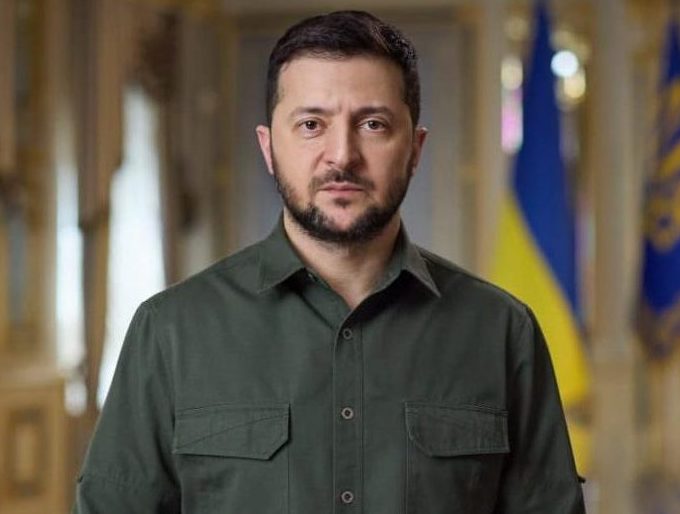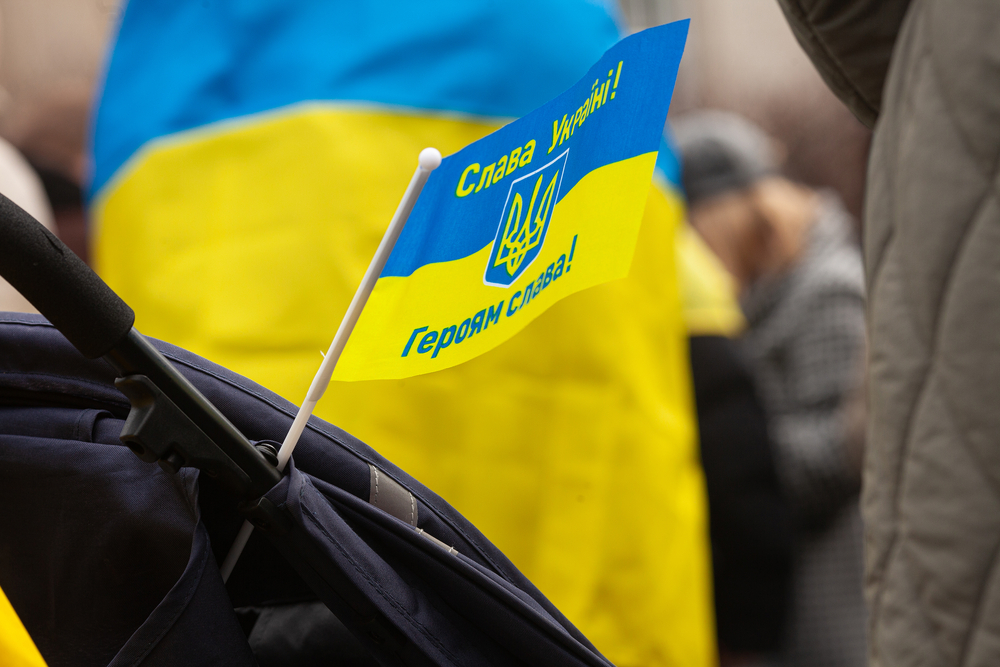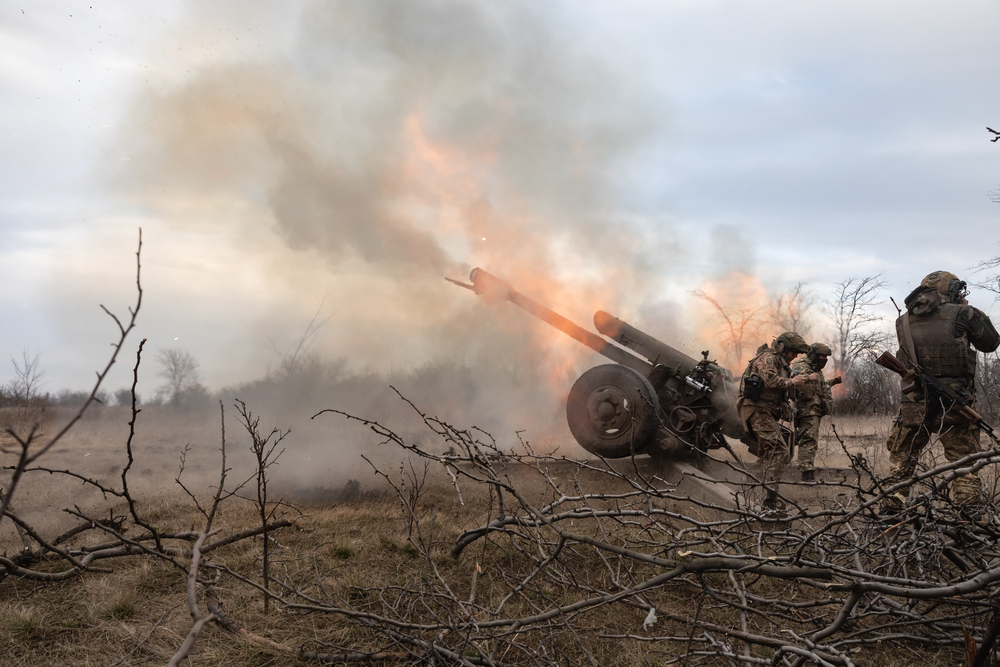Ukraine has a new President. The country, however, won’t be able to rest after the hot political season, as it has been thrown into the next electoral campaign, this time parliamentary.
A political novice and a career showman Volodymyr Zelensky has been sworn into the highest office of Ukraine on May 20 during the ceremony in the Parliament, the Verkhovna Rada. At the end of his inaugural speech, Zelensky has thrown a political bomb, announcing that he is going to dissolve the Parliament.
Shortly thereafter, Prime Minister Volodymyr Hroysman announced his resignation, despite his right to stay in office till the first plenary session of the new Rada.
Tuesday morning Zelensky met with the leaders of the parliamentary groups. Shortly thereafter he issued a presidential order dissolving the Parliament and calling a snap election on July 21. While there are voices claiming that the dissolution is unconstitutional, the mainstream mood among the Ukrainian politicians is to prepare for the election and not to fight it.
Three years without a coalition
Ukraine has been bracing for this movesince mid-April. The reason is that there is possibly no coalition in the Ukrainian Parliament for already more than three years. In 2016 three parties left an existing at the time coalition. Although the remaining two political groups fell (and still falls 11 members of parliament) short of the majority, they maintained that the coalition existed. In practice, they were dependent on other groups or individual members to adopt any decision. This wasn’t always efficient, as in many cases the Parliament failed to adopt even the initiatives proposed by then-President Petro Poroshenko. Still, as long as Poroshenko stayed in power, that didn’t have any practical consequences. Zelensky, on the other hand, did not hesitate much.
Why would he push for the snap election, if the regular parliamentary election was foreseen for the end of October this year?
The first reason is that the new President has no political group in the Verkhovna Rada. That means, for every initiative he will have to struggle to find an ad hoc majority. Zelensky has already indicated several proposals, like to cancel the parliamentary immunity, a popular move in Ukraine for many years, which, nevertheless, still couldn’t have found enough voices in the Parliament to be adopted.
“Adopt these important bills and decisions, – Zelensky addressed the members of parliament. – It would be not a bad move before the snap parliamentary election. I am dissolving the Verkhovna Rada”. In other words, he will be pressing the current members of parliament to support his initiatives with the wrath of the people. That may turn to a race to vote for some of the new initiatives within the next two months.
The second reason is that Verkhovna Rada is traditionally one of the least popular institutions in the country. So, by dissolving it, Zelensky reaffirms his anti-establishment image and serves to the voters who would like to see members of parliament sacked for whatever reason.
On the peak of the popularity
Probably the most important is the third reason, that is the numbers. The only serious opinion poll conducted after the presidential election has shown that a party of Zelensky “Servant of the people” could receive as much as 40% of the votes. The closest rivals, including Poroshenko’s party, are polling at around 10%.
40% is a much higher number than in the previous polls and should be perceived as a very tentative one, as Zelensky’s support will be fluctuating quite strongly, depending on his first actions in the office. What is sure for now is that “Servant of the people” is a clear front-runner and that Zelensky’s real rating is less than his 73% in the runoff of the presidential election.
Besides, the new President’s team definitely remembers the situation in 2014. In May that year, Poroshenko received almost 55% of the vote in the first round of the presidential election. Just five months later his party finished second with less than 22%. And in general, presidents tend to enjoy peaks of their popularity right after their victories and start losing support shortly afterwards.
A usual inauguration with an unusual participant
During the inauguration, Zelensky followed its usual procedure to the point. At other times his style wasn’t always usual for Ukrainian President. In the morning Zelensky went several blocks on foot to his administration. Then, while coming to the Parliament, he was clapping hands of the people gathered there and even jumped once in the process.
Although he seemed a couple of times a bit at a loss during all the procedures, Zelensky delivered his inaugural speech in the Rada confidently and with a lot of energy, several times reacting impromptu to what was happening in the house. The speech was practically devoid of any bureaucratic-patriotic speak that is widely used by a lot of Ukrainian politicians.
Despite a populist tone in some of his recent statements (that is referring to the will of the 73% of the people who voted for him), the new Ukrainian President started the speech with a unifying note: “Each of us is a President. Not 73% who voted for me, but all 100% of the Ukrainians”. By saying this, he called for everyone living in Ukraine to take responsibility for the country, so that there won’t be any headlines in the media “The President does not pay taxes”, meaning that this should apply to every person.
In the beginning, members and guests of the Rada were listening quite tensely, but after the words “We are all Ukrainians: there are no bigger or lesser, no correct or incorrect Ukrainians” first applauds started. And erupted many times more.
Zelensky said that his first task is a ceasefire in Donbass. It is a region in the Eastern Ukraine where the war against Russian aggression entered its sixth year. He added that to achieve the goal he is ready to do anything, even to lose his office. The only no-go is for him to give up any Ukrainian territories, either in Donbass or Crimea, a peninsula that has been occupied and annexed by Russia. Switching to Russian, Zelensky promised to reverse the biggest loss – the minds of the people in those territories, so that they would feel again that they are Ukrainians. At the same time, he hasn’t mentioned Russia even once.
Scarce high-level attendance
Zelensky reaffirmed in the speech a European choice of Ukraine. However, not so many foreign leaders came to Kyiv to hear this directly from him. Just five Presidents attended the inauguration, and that of the closest partners: three Baltic states, Georgia, and Hungary (the latter is obviously hoping for a new start in relations after almost two years of the conflict with Poroshenko’s administration over Ukrainian education law).
For comparison, the inauguration in 2014 has been attended by about 20 Presidents and Prime Ministers. That could not be explained by short notice, because five years ago the Parliament appointed the date of the inauguration the same four days before. European election that is going to start just this Thursday, could be partly blamed. At the same time, one cannot dispute that Ukraine plummeted quite low on the list of concerns of the EU and other Western countries.
Shortened political season
The negative effect of the snap parliamentary election in Ukraine is that the voters won’t have much time to discern what kind of President Zelensky is. And there will be very little time for the full electoral campaign. New political projects could suffer as a result, like the one launched by a singer Vyacheslav Vakarchuk last week. His party could be a competitor to “Servant of the people” within certain electoral niches.
On the other hand, the political season in Ukraine will most probably end in summer. That means the new President, Parliament, and government won’t have in autumn any hindrances or excuses not to work on reforming the country with 100% capacity. And when the current political season in the EU will end the end of this year with a new European Commission, Ukraine will have to be fully ready to work together with it.
“It was funny”, – sarcastically summarized the speaker of the Ukrainian Parliament the inauguration on Monday. However, many politicians in the country have no reason to laugh, as their political future is fully unclear.






 UA
UA FR
FR DE
DE

